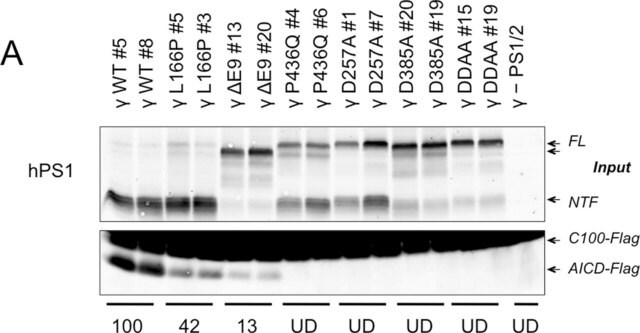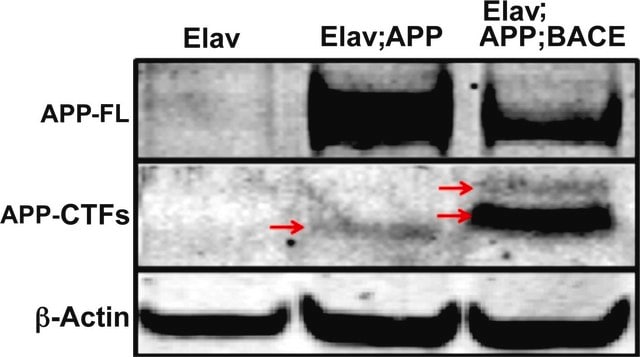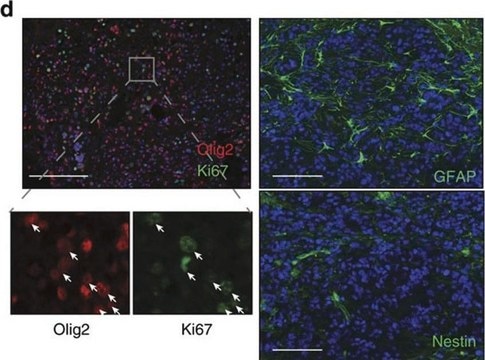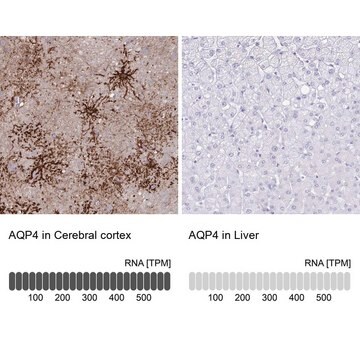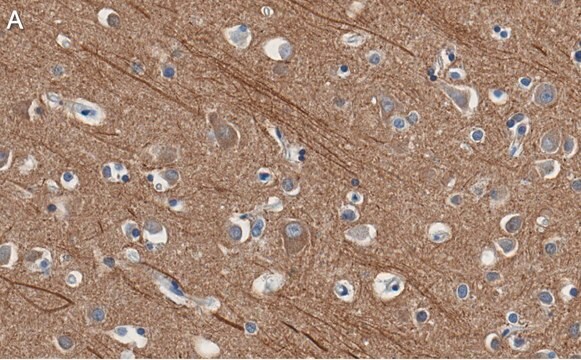MAB5232
Anti-Presenilin-1 Antibody, loop, a.a. 263-378, CT, clone PS1-loop
ascites fluid, clone PS1-loop, Chemicon®
Synonyme(s) :
Anti-ACNINV3, Anti-AD3, Anti-FAD, Anti-PS1, Anti-S182
About This Item
Produits recommandés
Source biologique
mouse
Forme d'anticorps
ascites fluid
Type de produit anticorps
primary antibodies
Clone
PS1-loop, monoclonal
Espèces réactives
rat, primate, mouse, human
Fabricant/nom de marque
Chemicon®
Technique(s)
immunocytochemistry: suitable
immunohistochemistry: suitable (paraffin)
immunoprecipitation (IP): suitable
western blot: suitable
Isotype
IgG1
Numéro d'accès NCBI
Numéro d'accès UniProt
Conditions d'expédition
dry ice
Modification post-traductionnelle de la cible
unmodified
Informations sur le gène
human ... PSEN1(5663)
Description générale
Spécificité
Immunogène
Application
A previous lot of this antibody was used in IC.Acetone or methanol fixed cells; or lightly fixed 2.5-3% PFA (5-10′ RT).
Immunohistochemistry:
A previous lot was used on 3% paraformaldehyde fixed tissue. Works on paraffin embedded tissue sections if fixed with PLP, acetone or other light fixations; 10% formalin fixation is untested.
Immunoprecipitation:
A previous lot of this antibody was used in IP.
Western blot:
Recognizes a protein of approximately 18-20 kD, and occasionally there is a doublet (the top band of which is phosphorylated).
Optimal working dilutions must be determined by the end user
Neuroscience
Neurodegenerative Diseases
Qualité
Western Blot Analysis:
1:500 dilution of this lot detected PRESENILIN-1 on 10 μg of PC12 lysates.
Description de la cible
Forme physique
Stockage et stabilité
Handling Recommendations: Upon receipt, and prior to removing the cap, centrifuge the vial and gently mix the solution. Aliquot into microcentrifuge tubes and store at -20°C. Avoid repeated freeze/thaw cycles, which may damage IgG and affect product performance.
Remarque sur l'analyse
Brain tissue
Autres remarques
Informations légales
Clause de non-responsabilité
Vous ne trouvez pas le bon produit ?
Essayez notre Outil de sélection de produits.
En option
Code de la classe de stockage
10 - Combustible liquids
Classe de danger pour l'eau (WGK)
WGK 1
Point d'éclair (°F)
Not applicable
Point d'éclair (°C)
Not applicable
Certificats d'analyse (COA)
Recherchez un Certificats d'analyse (COA) en saisissant le numéro de lot du produit. Les numéros de lot figurent sur l'étiquette du produit après les mots "Lot" ou "Batch".
Déjà en possession de ce produit ?
Retrouvez la documentation relative aux produits que vous avez récemment achetés dans la Bibliothèque de documents.
Notre équipe de scientifiques dispose d'une expérience dans tous les secteurs de la recherche, notamment en sciences de la vie, science des matériaux, synthèse chimique, chromatographie, analyse et dans de nombreux autres domaines..
Contacter notre Service technique